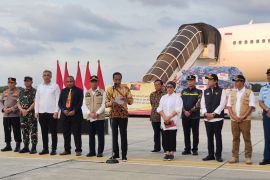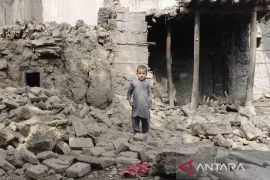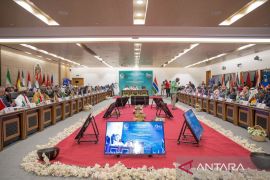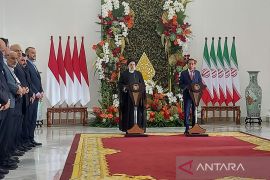Insurgents managed to occupy a high-rise building site that towers over the US embassy and NATO`s headquarters in Afghanistan, firing rockets and spraying gunfire well inside the city`s supposedly secure "ring of steel" zone.
The audacious assault that killed 14 people is the latest in a string of major attacks in Kabul that have shown the Taliban`s seeming ease in moving around the capital, a decade after their regime was ousted by US-led forces.
The violence is an acute embarrassment for the Western-backed government, exposing fundamental problems even as it assumes responsibility for security in a phased withdrawal of foreign troops which began two months ago.
In 2011 "attacks in Kabul have become more intense, lasted longer... and struck ever more supposedly-secure targets," said Joshua Foust, a fellow on the American Security Project, on the registan.net website.
Stephen Biddle of the US-based Council on Foreign Relations told AFP the brazen assaults show insurgents may have sympathisers within the security forces.
"What`s happening in these attacks is not guerrillas penetrating large defensive cordons. It`s guerrillas infiltrating because there are sympathetic people willing to let them in," he said.
Senior US military figures insist that in most cases where security forces help the insurgents, the cause is combat stress or intimidation and blackmail.
But Andrew Exum, senior fellow at the Center for a New American Security, said national forces had given an "uneven" performance in previous attacks in Kabul, and "critical" questions would be raised about their response to the latest incident as the government motors towards transition.
"If the Afghan security forces and intelligence services can safeguard their own capital city... that is reason for encouragement," he wrote in Foreign Policy magazine. "If they cannot, that is reason for despair."
Afghan forces are officially in charge of security in Kabul but frequently call on foreign troops for support in major attacks, including a suicide bombing on the British Council cultural body last month and the storming of the luxury Intercontinental Hotel in June.
The latest violence caused fresh dismay among many Afghans whose faith in their government is being sorely tested at the start of a phased withdrawal that will see all foreign combat forces leave Afghanistan by the end of 2014.
"This attack showed that the government, our intelligence agencies and the police are very lax," said Kabuli money trader Rohullah Stanikzai, who said he had lost confidence in the ability of the national army and police.
"They never realised that this building was in such a sensitive and strategic location... They must have realised this, it`s very simple."
Afghan security forces will number 352,000 by next October, part of a US-backed programme costing $11.6 billion this year alone to build them up ahead of the foreign withdrawals.
Top US politicians admitted that the coordinated attacks by insurgents using firearms, rockets and suicide vests showed a worrying level of sophistication, but insisted such visible raids were a sign of desperation and not strategically significant.
"When an insurgency suffers strategic reversals, as the Taliban have, they look for a spectacular attack to get in the press. I think that falls into this category," said Republican Senator Mark Kirk.
"I don`t think one attack is going to affect the strategic position, which is basically working," said Senate Armed Services Committee Chairman Carl Levin, a Democrat.
Shops in central Kabul reopened quickly following an official all-clear on Wednesday and citizens returned to the streets, contributing to traffic jams which US ambassador Ryan Crocker reportedly described as the city`s worst problem the day before the attacks.
But the psychological impact of the Taliban`s prolonged assault on the capital, considered to be a bubble of safety relative to most of the country, has shaken many of the city`s inhabitants.
"I haven`t slept the whole night. I can`t believe they got in there," said Bahram Sarwary, who lives in an affluent district popular with Kabul`s young, wealthy elite across the river from where the attacks took place.
"When people see that some thugs or terrorists can infiltrate very sensitive areas of Kabul, they can`t trust the security forces," added the 37-year-old satellite phone trader.
(Uu.B002)
Editor: Priyambodo RH
Copyright © ANTARA 2011











